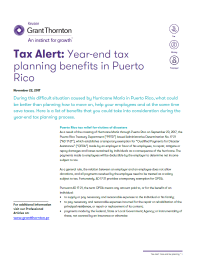-
Financial statements audits
Financial statement audits
-
Compliance audits
Compliance audits
-
Compilations and reviews
Compilations and audit
-
Agreed-upon procedures
Agreed-upon procedures
-
Corporate and business tax
Our trusted teams can prepare corporate tax files and ruling requests, support you with deferrals, accounting procedures and legitimate tax benefits.
-
International tax
Our teams have in-depth knowledge of the relationship between domestic and international tax laws.
-
Tax compliance
Business Tax
-
Individual taxes
Individual taxes
-
Estate and succession planning
Estate and succession planning
-
Global mobility services
Through our global organisation of member firms, we support both companies and individuals, providing insightful solutions to minimise the tax burden for both parties.
-
Sales and use tax and indirect taxes
SUT/ VAT & indirect taxes
-
Tax incentives program
Tax incentives program
-
Transfer Pricing Study
The laws surrounding transfer pricing are becoming ever more complex, as tax affairs of multinational companies are facing scrutiny from media, regulators and the public
-
Business consulting
Our business consulting services can help you improve your operational performance and productivity, adding value throughout your growth life cycle.
-
Forensic and investigative services
At Grant Thornton, we have a wealth of knowledge in forensic services and can support you with issues such as dispute resolution, fraud and insurance claims.
-
Fraud and investigations
The commercial landscape is changing fast. An ever more regulated environment means organizations today must adopt stringent governance and compliance processes. As business has become global, organizations need to adapt to deal with multi-jurisdictional investigations, litigation, and dispute resolution, address the threat of cyber-attack and at the same time protect the organization’s value.
-
Dispute resolutions
Our independent experts are experienced in advising on civil and criminal matters involving contract breaches, partnership disputes, auditor negligence, shareholder disputes and company valuations, disputes for corporates, the public sector and individuals. We act in all forms of dispute resolution, including litigation, arbitration, and mediation.
-
Business risk services
We can help you identify, understand and manage potential risks to safeguard your business and comply with regulatory requirements.
-
Internal audit
We work with our clients to assess their corporate level risk, identify areas of greatest risk and develop appropriate work plans and audit programs to mitigate these risks.
-
Service organization reports
As a service organization, you know how important it is to produce a report for your customers and their auditors that instills confidence and enhances their trust in your services. Grant Thornton Advisory professionals can help you determine which report(s) will satisfy your customers’ needs and provide relevant information to your customers and customers’ auditors that will be a business benefit to you.
-
Transaction advisory services
Transactions are significant events in the life of a business – a successful deal that can have a lasting impact on the future shape of the organizations involved. Because the stakes are high for both buyers and sellers, experience, determination and pragmatism are required to bring deals safely through to conclusion.
-
Mergers and acquisitions
Globalization and company growth ambitions are driving an increase in M&A activity worldwide as businesses look to establish a footprint in countries beyond their own. Even within their own regions, many businesses feel the pressure to acquire in order to establish a strategic presence in new markets, such as those being created by rapid technological innovation.
-
Valuations
We can support you throughout the transaction process – helping achieve the best possible outcome at the point of the transaction and in the longer term.
-
Recovery and reorganization
We provide a wide range of services to recovery and reorganisation professionals, companies and their stakeholders.
During this difficult situation caused by Hurricane María in Puerto Rico, what could be better than planning how to move on, help your employees and at the same time save taxes. Here is a list of benefits that you could take into consideration during the year-end tax planning process.
Puerto Rico tax relief for victims of disasters
As a result of the crossing of Hurricane María through Puerto Rico on September 20, 2017, the Puerto Rico Treasury Department (“PRTD”) issued Administrative Determination No. 17-21 (“AD 17-21”), which establishes a temporary exemption for “Qualified Payments for Disaster Assistance” (“QPDA”) made by an employer in favor of his employees, to repair, mitigate or repay damages and losses sustained by individuals as a consequence of the hurricane. The payments made to employees will be deductible by the employer to determine net income subject to tax.
As a general rule, the relation between an employer and an employee does not allow donations, and all payments received by the employee need to be treated as a salary subject to tax. Fortunately, AD 17-21 provides a temporary exemption for QPDA.
Pursuant AD 17-21, the term QPDA means any amount paid to, or for the benefit of an individual:
- to supply or pay necessary and reasonable expenses to the individual or his family;
- to pay necessary and reasonable expenses incurred for the repair or rehabilitation of the principal residence, or repair or replacement of its content;
- payments made by the Federal, State or Local Government; Agency; or Instrumentality of these, not covered by an insurance or otherwise
To qualify as a QPDA, the payment shall comply with the following requirements:
- must be delivered to the individual between September 21, 2017 and December 31, 2017;
- in the case of payments made by an employer, the amount should be additional to the ordinary compensation; there must be no discrimination in favor of highly paid employees, as defined in Section 1032.06(d)(2) of the PRIRC; is limited to $1,000 monthly; and it cannot be attributed or related to the position or salary received by the employee
Moreover, pursuant AD 17-21, all employers that offer loans, without interest, to its employees during the period of September 21, 2017 and Jun 30, 2018 to cover necessary and reasonable expenses of him or his family; and expenses for the construction or repair of his principal residence as consequence of Hurricane María, does not have to recognize any income related to the loan, as long as the total of loans provided does not exceed $20,000 per employee.
Net operating losses deduction
Pursuant Section 1033.05 of the Puerto Rico Internal Revenue Code (“PRIRC”), an individual (trade or business), corporation or partnership shall be allowed to claim as a deduction losses sustained during the taxable year and not compensated for by insurance or otherwise.
In addition, as stated on Section 1033.14 of the PRIRC, net operating losses not claimed during the taxable year shall be carried-over to succeeding taxable years, for 10 years, following the rules stated in this section.
Losses deductions applicable to individual taxpayers
Section 1033.15 of PRIRC provides relief for individuals who sustained:
- loss of residence from fire, storms and other casualties; and the loss was not compensated for by insurance or otherwise; and/or
- losses with respect to automobiles, furniture, household goods and other chattels, excluding the value of jewelry or cash, not compensated for by insurance or otherwise; due to earthquakes, hurricanes, storms, tropical depressions and flood occurring as result of such casualties in an area declared by the Governor of Puerto Rico as a disaster area. In this particular case, the deduction is limited to $5,000 ($2,500 for those spouses who live together and elect to file separate returns).
Distributions from qualified retirement plans and individual retirement accounts due to Hurricane María
Recently issued AD 17-29 allows resident taxpayers to withdraw funds from qualified retirement plans and from individual retirement accounts to cover expenses or losses caused by Hurricane María.
- the first $10,000 withdrawn will be tax exempt.
- any withdrawal over $10,000 will be subject to tax at 10%
- no Treasury penalty will be imposed, although the financial institution could impose any penalty applicable to the instrument.
- the maximum withdrawal allowed is $100,000.
- taxpayers have from September 20, 2017 to June 30, 2018 to make the withdrawal.
Additional planning ideas for individual taxpayers
- deduction for contributions made to a qualified Individual Retirement Account (traditional IRA). The maximum deduction for an individual is $5,000 ($10,000 for married taxpayers filing a joint return)
- deduction for contributions made to a qualified plan for benefits of an individual, Keogh Plan. These benefits apply to individuals that have a business or receive income subject to self-employment tax (professional services)
- if you have stock with losses, you could consider selling them to realize and claim the loss to offset any gains. Please be aware, if you buy back the stock sold within 30 days (before or after the sale) the deduction will not be allowed since it is considered as a “wash sale”.
- if you choose to share some wealth with others and in the future it will be subject to Estate Tax if maintained by you, tax-free gifts of $10,000 per person are allowed in Puerto Rico until December 31 ($20,000 for married taxpayers filing a joint return)
Note: The content presented in this publication is regarding Puerto Rico taxes. The Internal Revenue Service (“IRS”) provides specific deductions for disasters not mentioned in this communication. Recently, the IRS approved Law No. 115-63 of September 29, 2017, known as Disaster Tax Relief and Airport and Airway Extension Act of 2017, which includes specific relief for hurricanes Harvey, Irma and María. We will issue a publication in the near future with the details after the IRS provides guidance.


